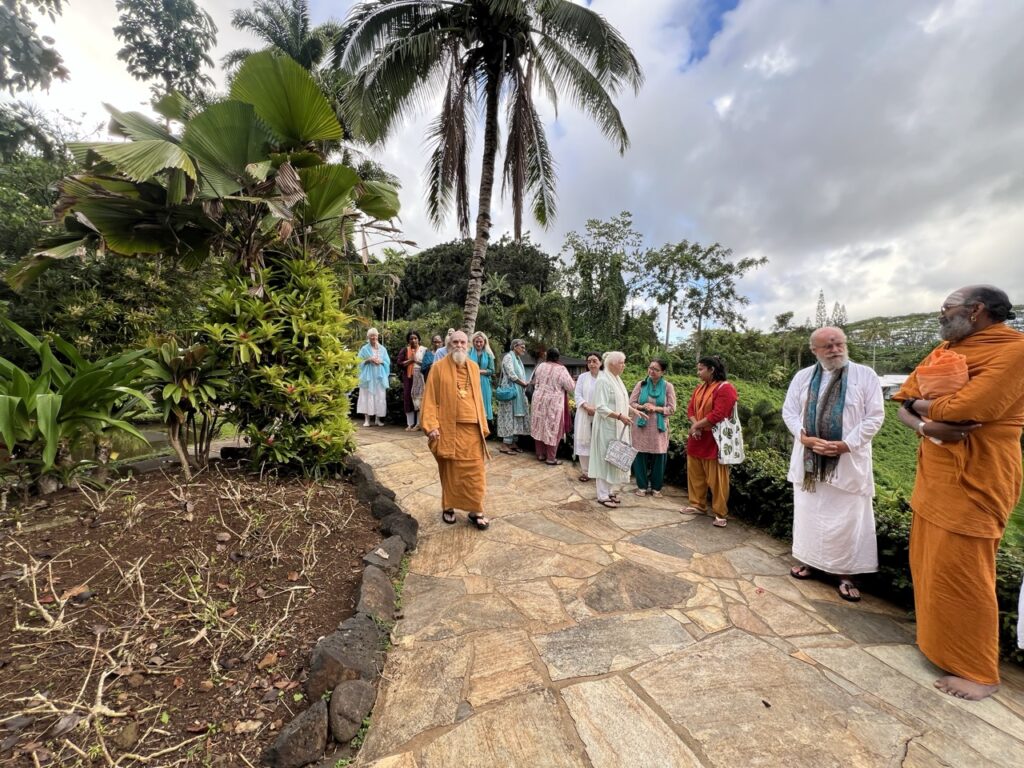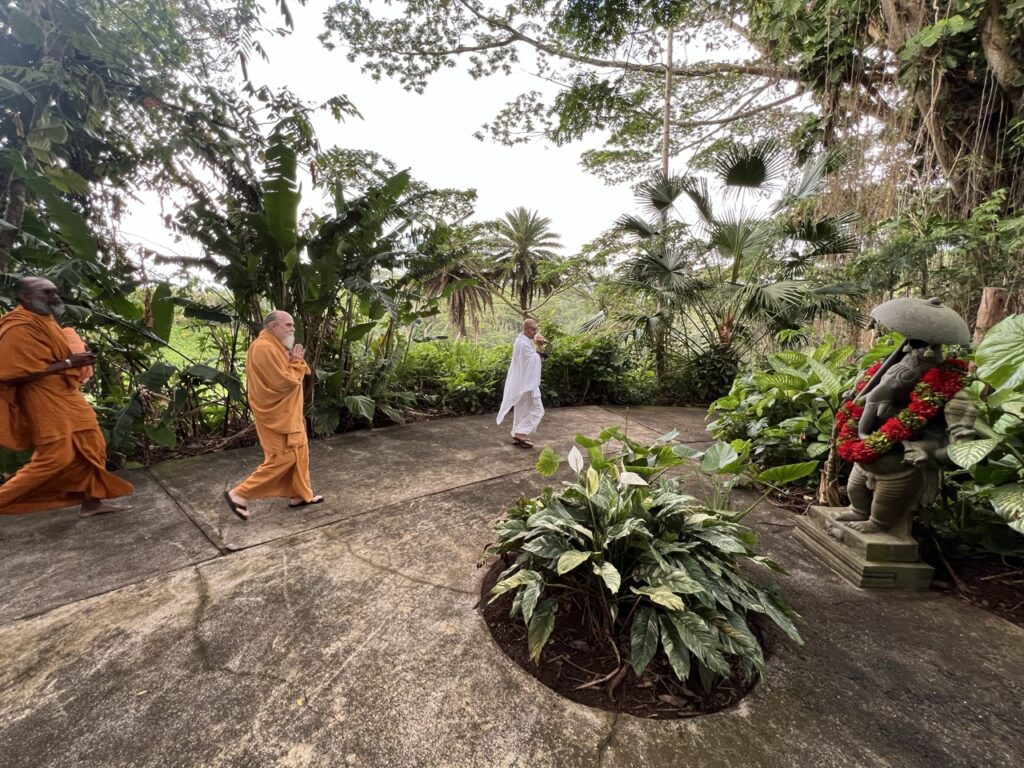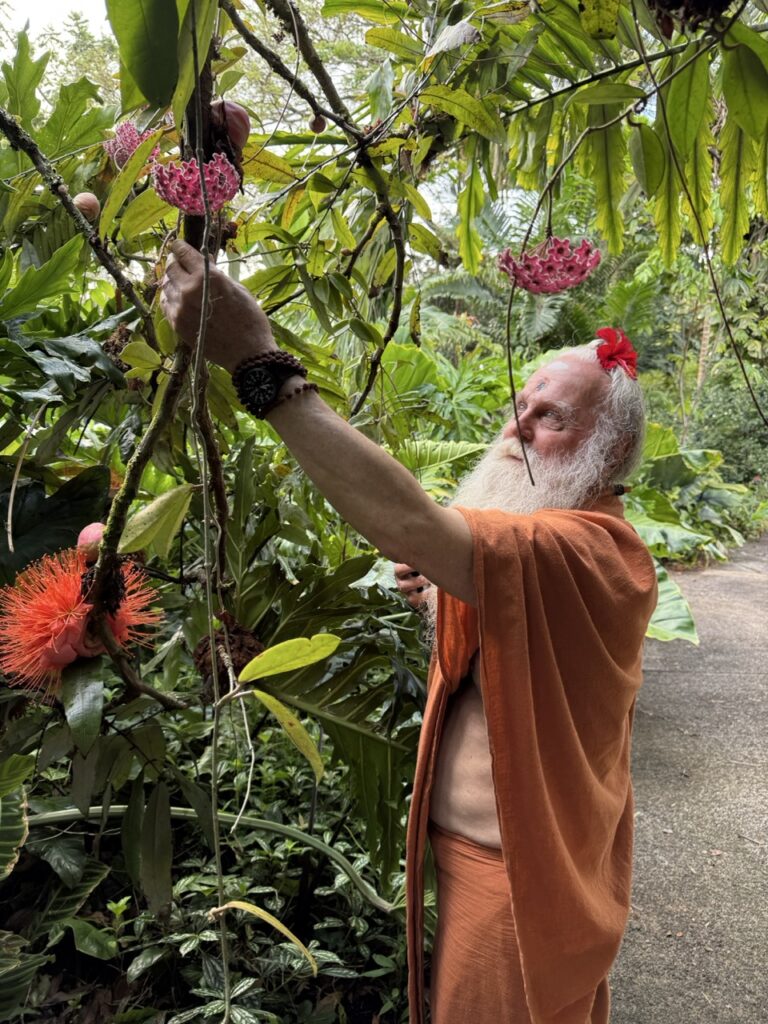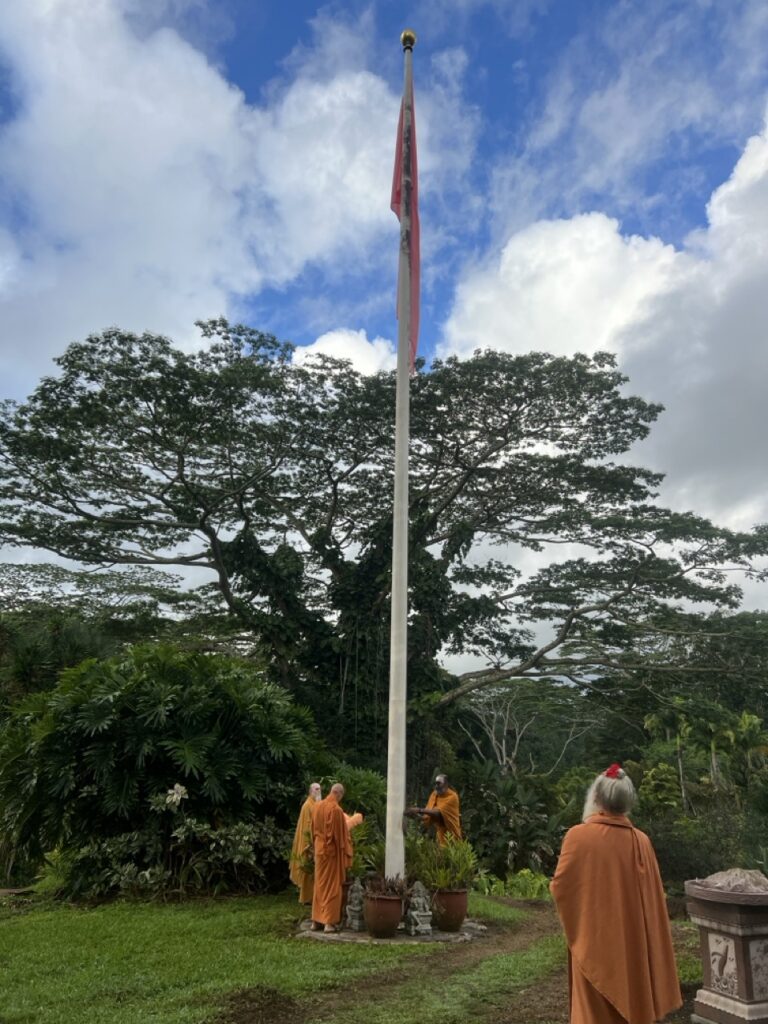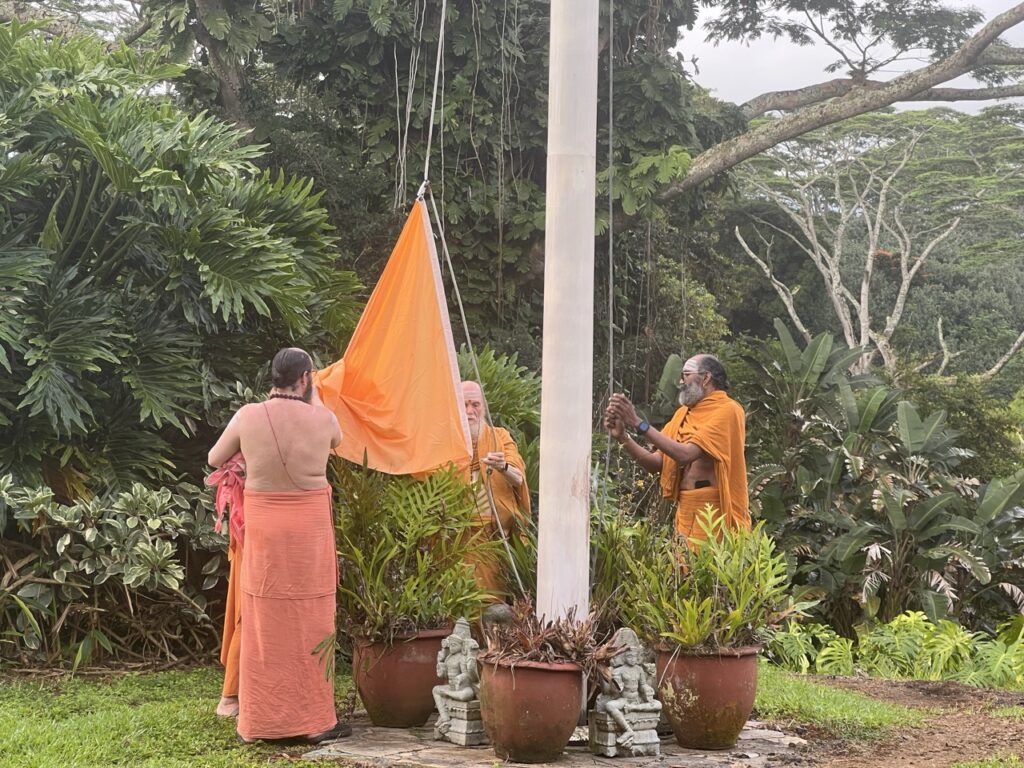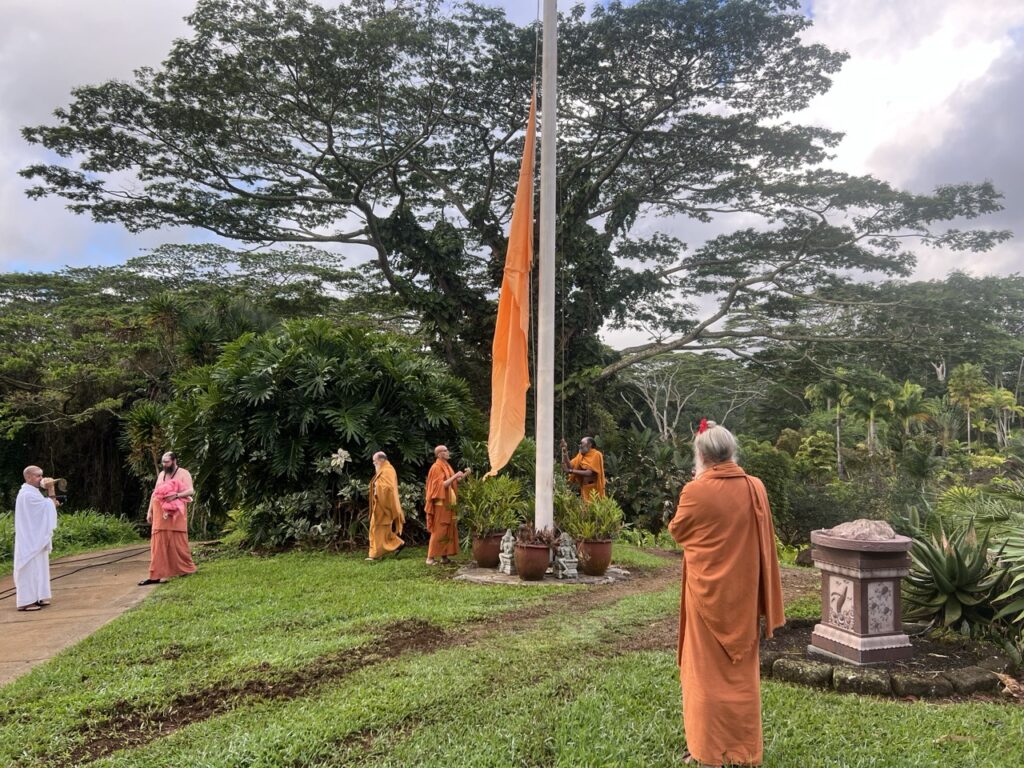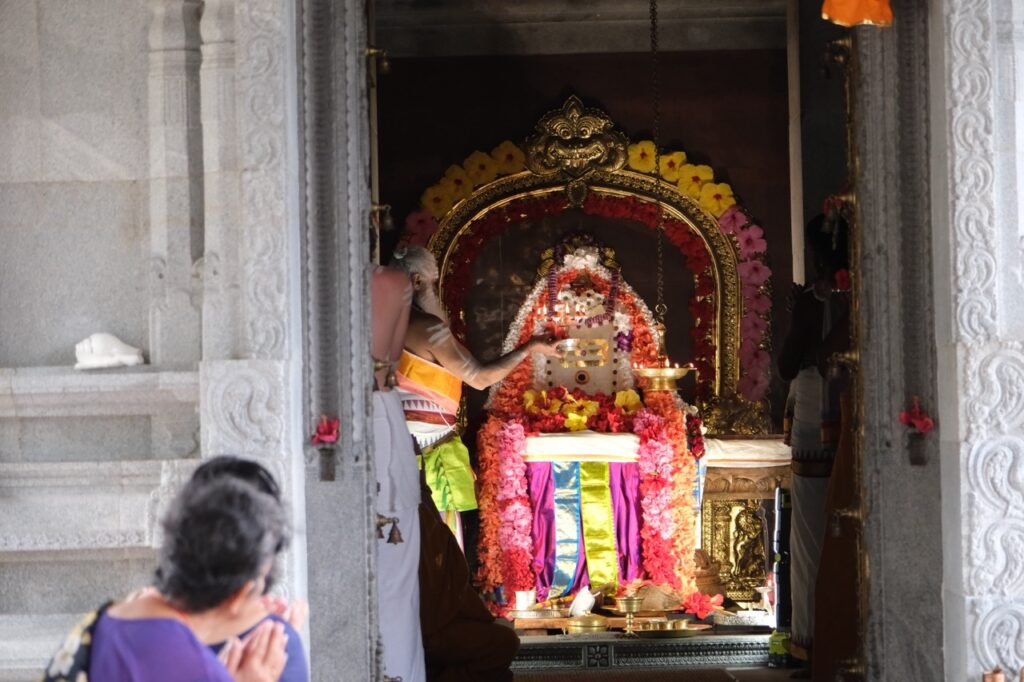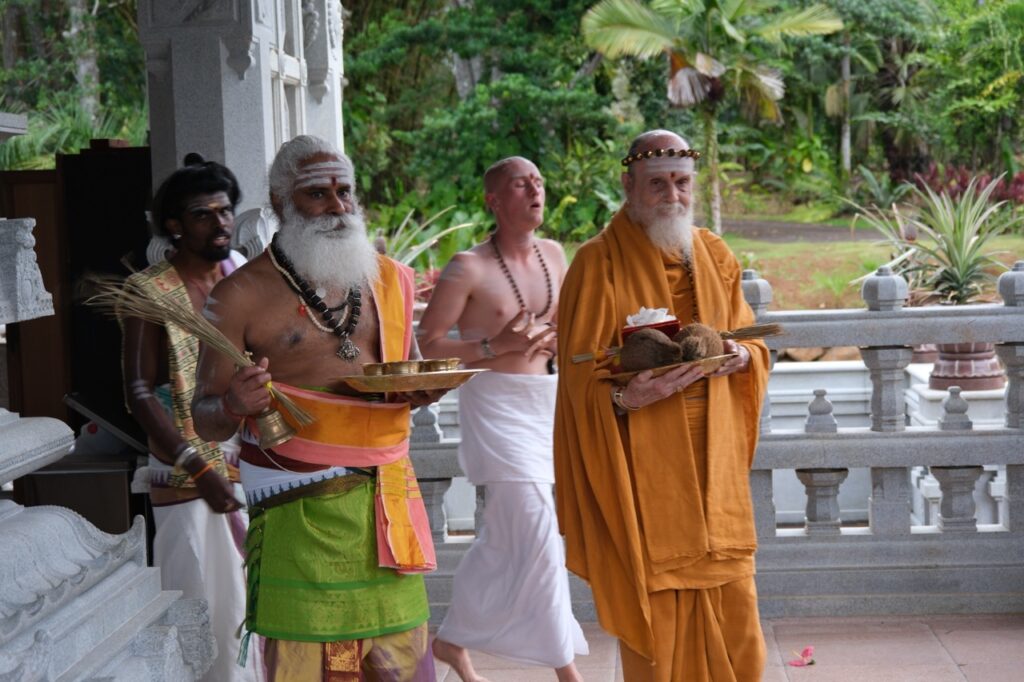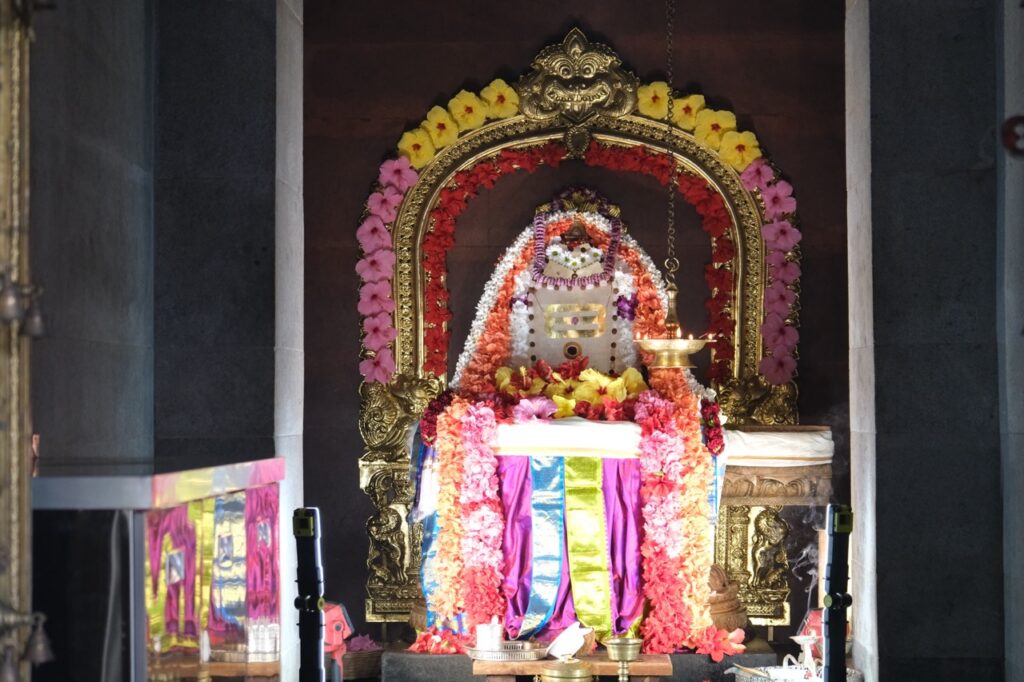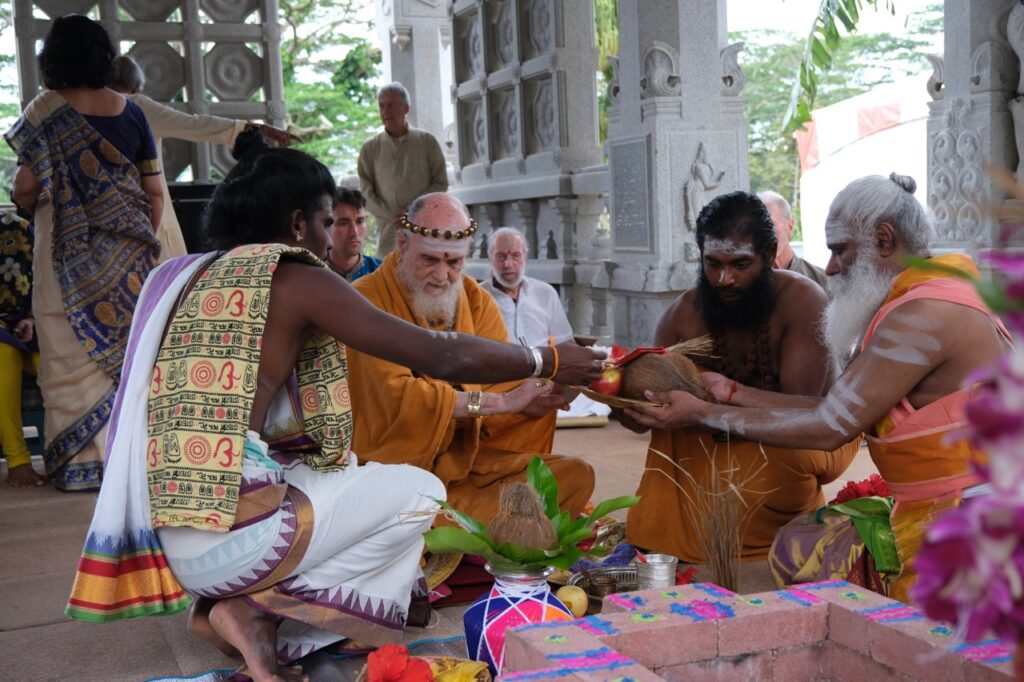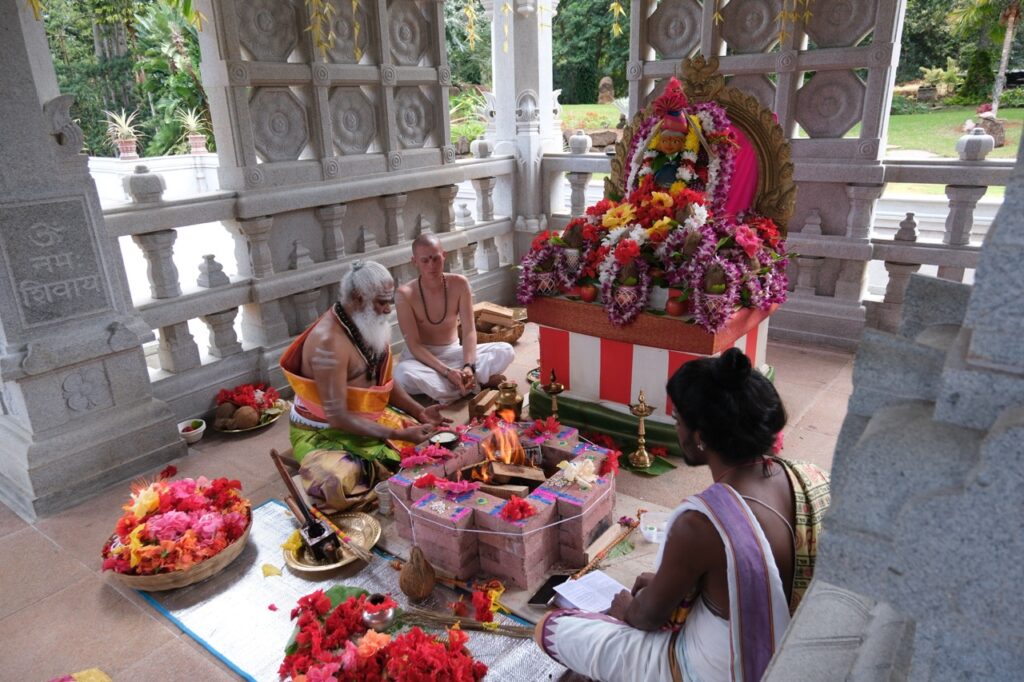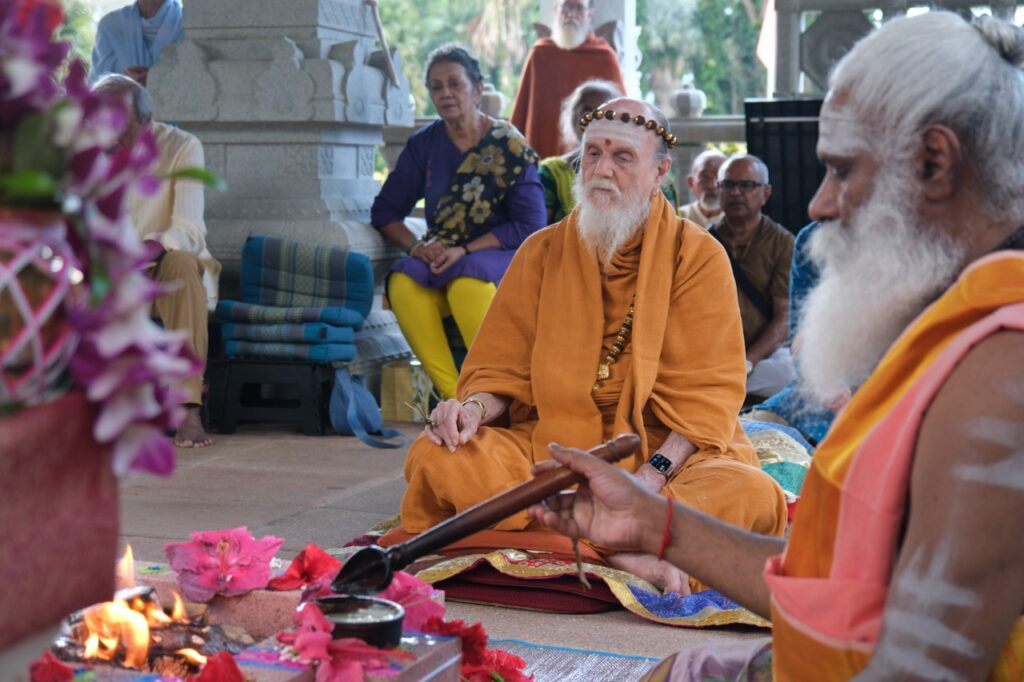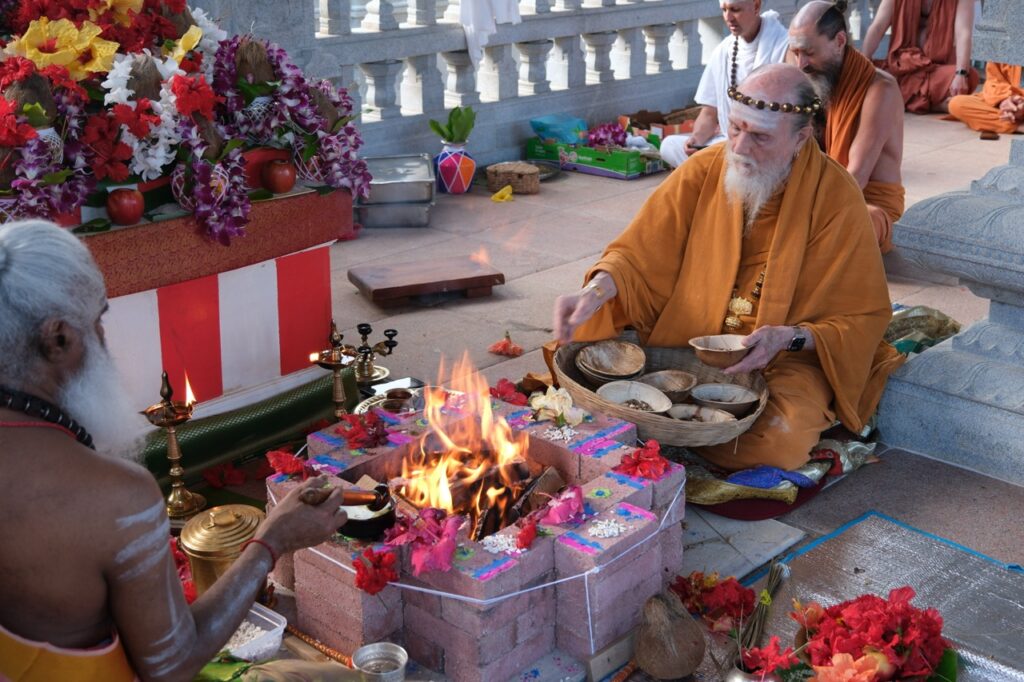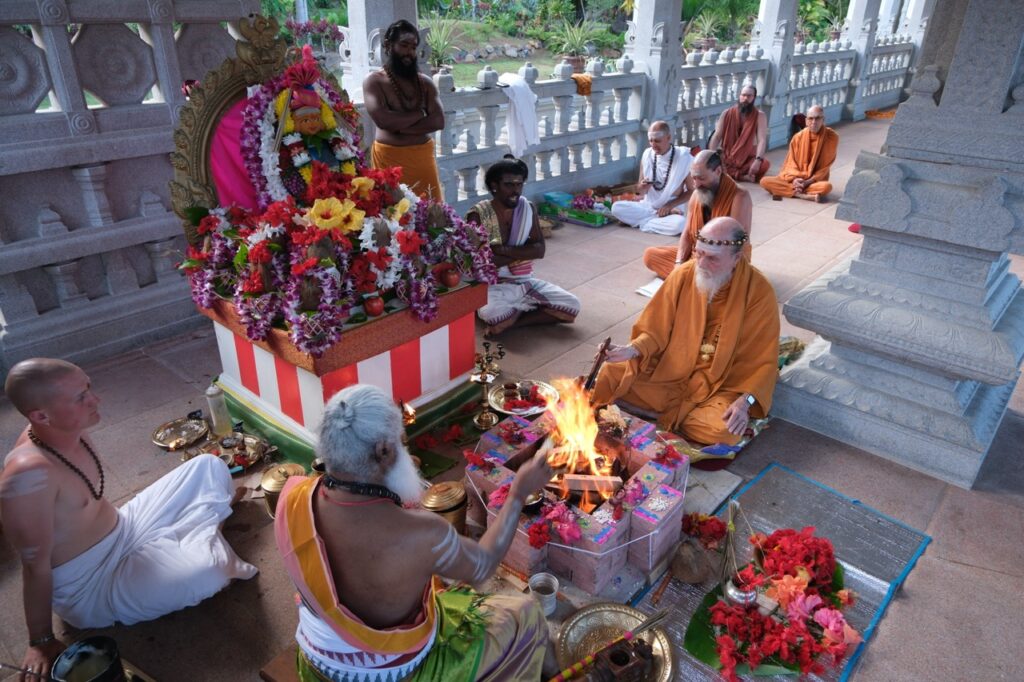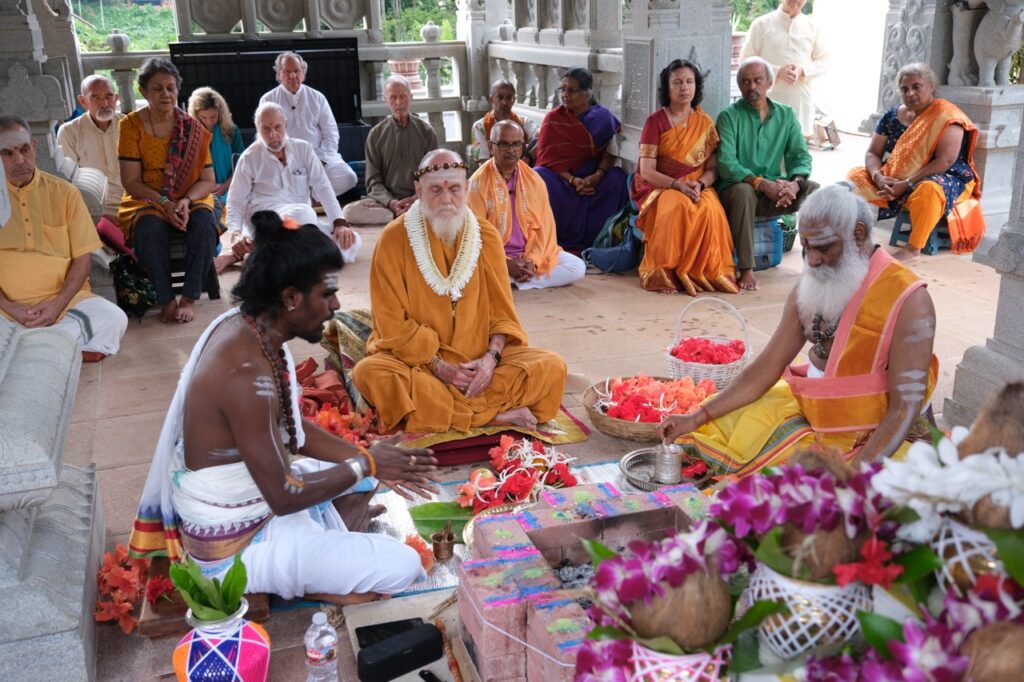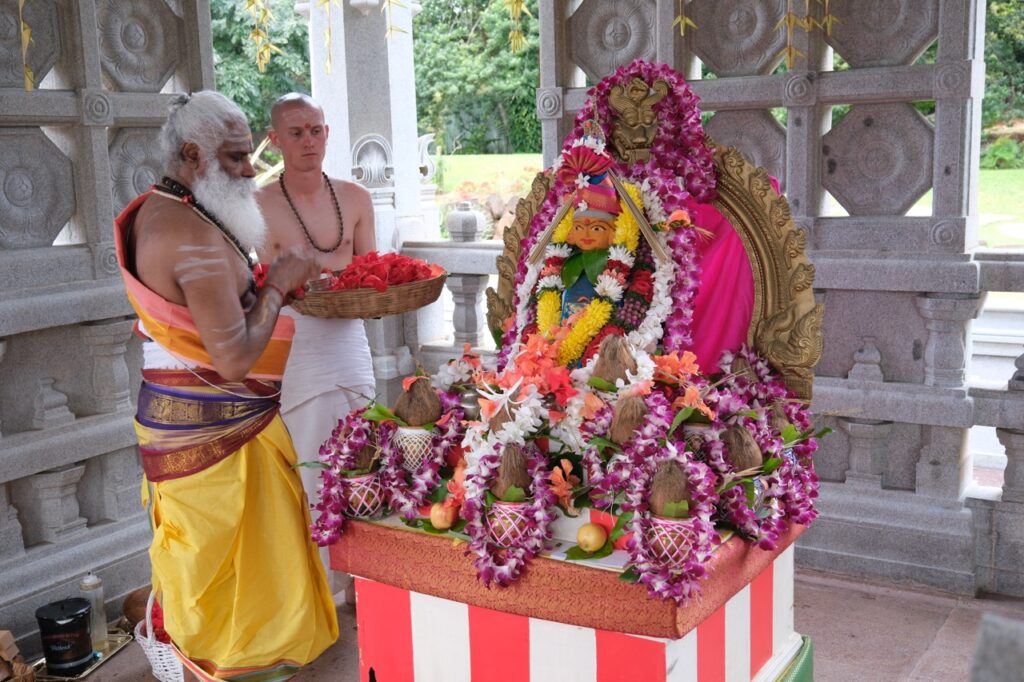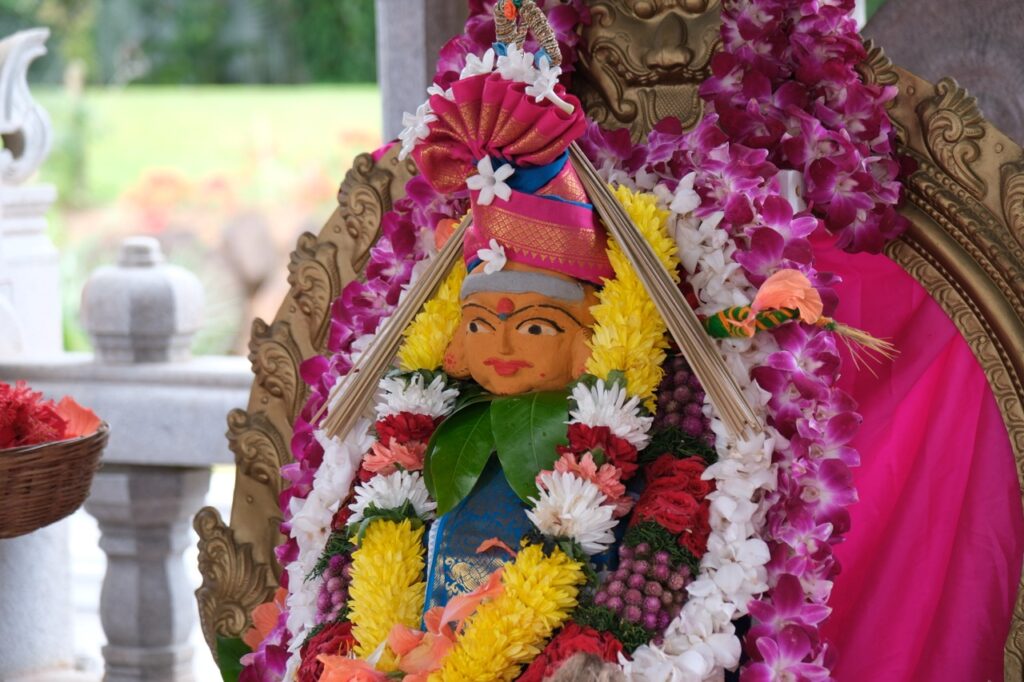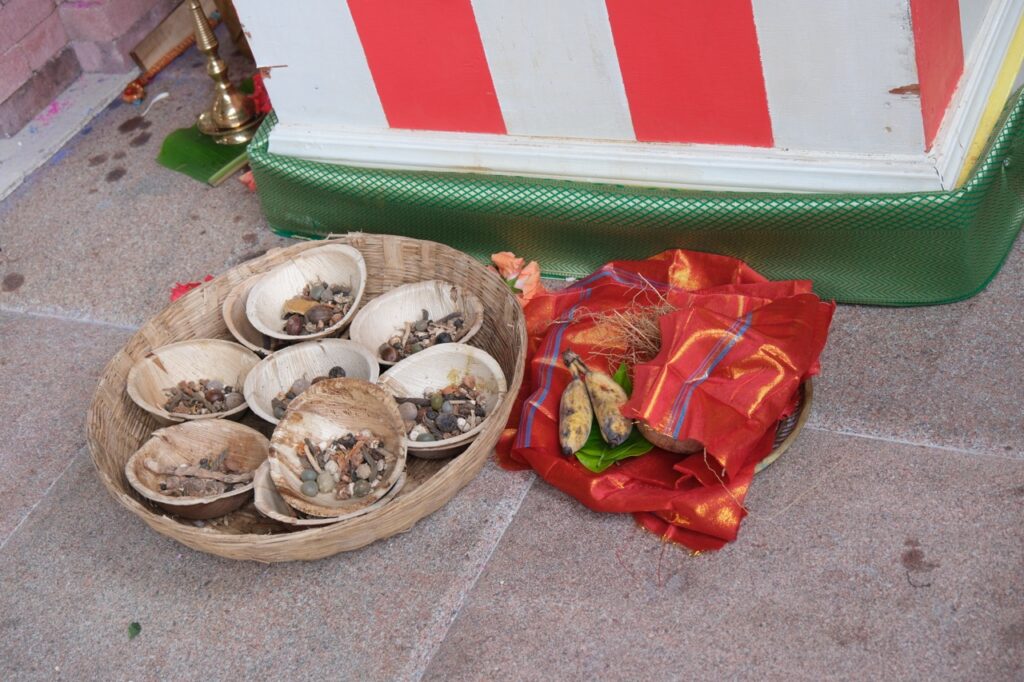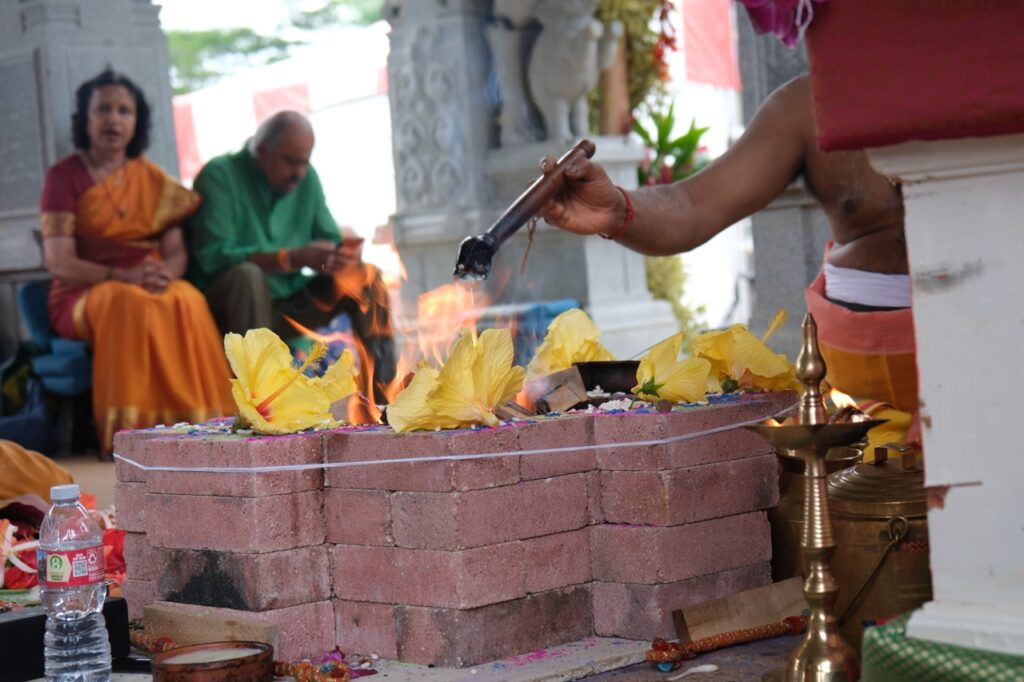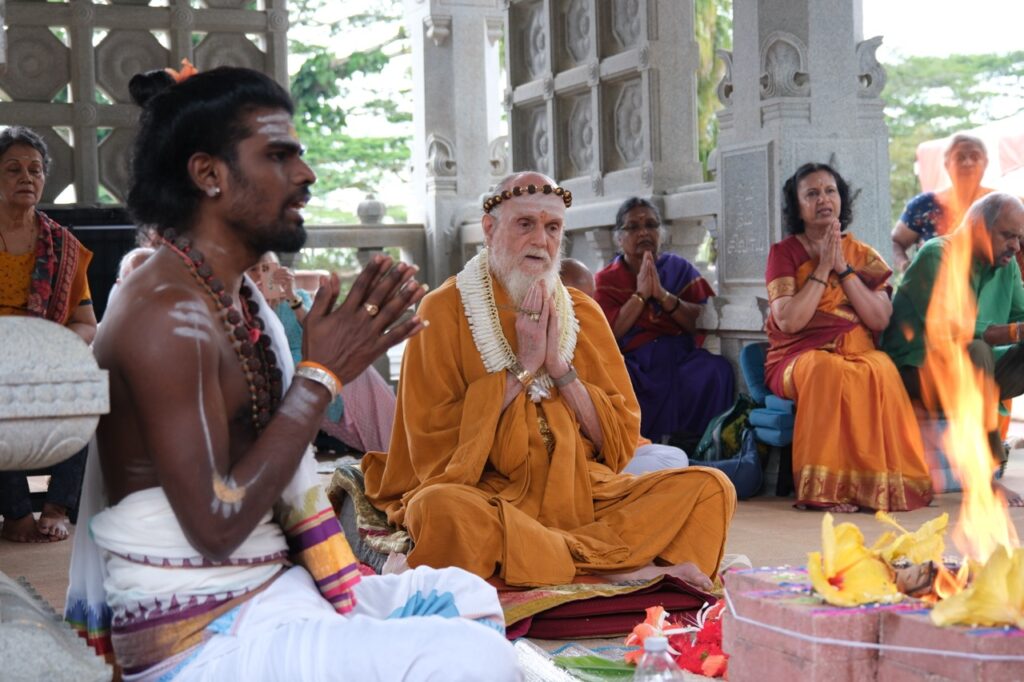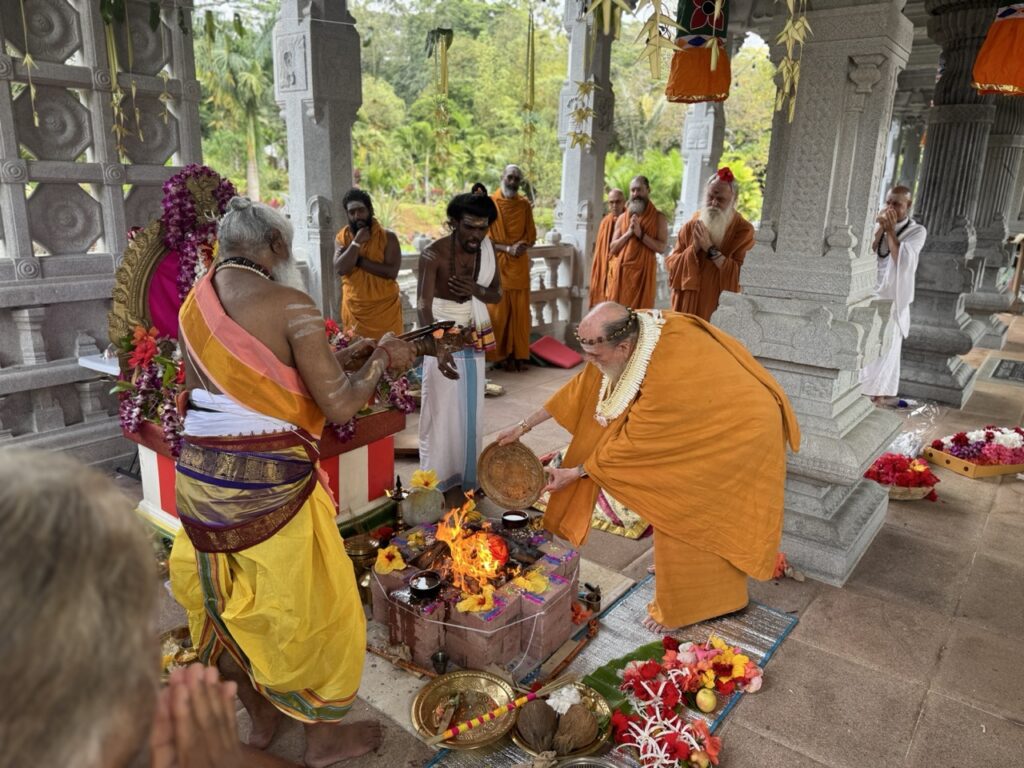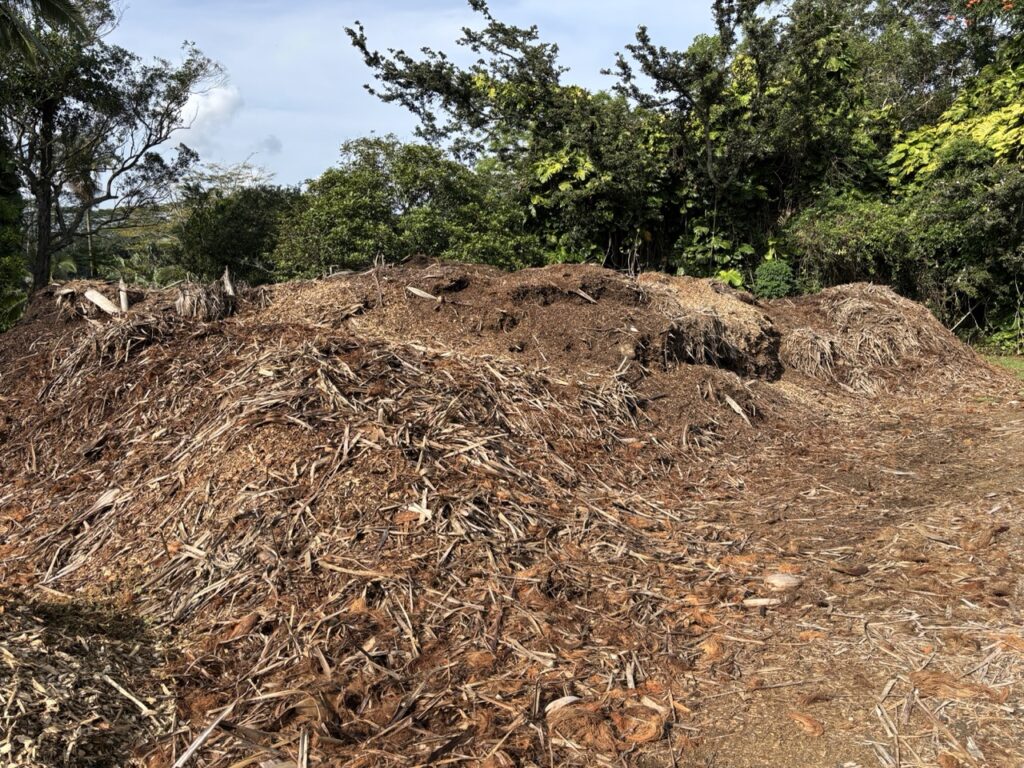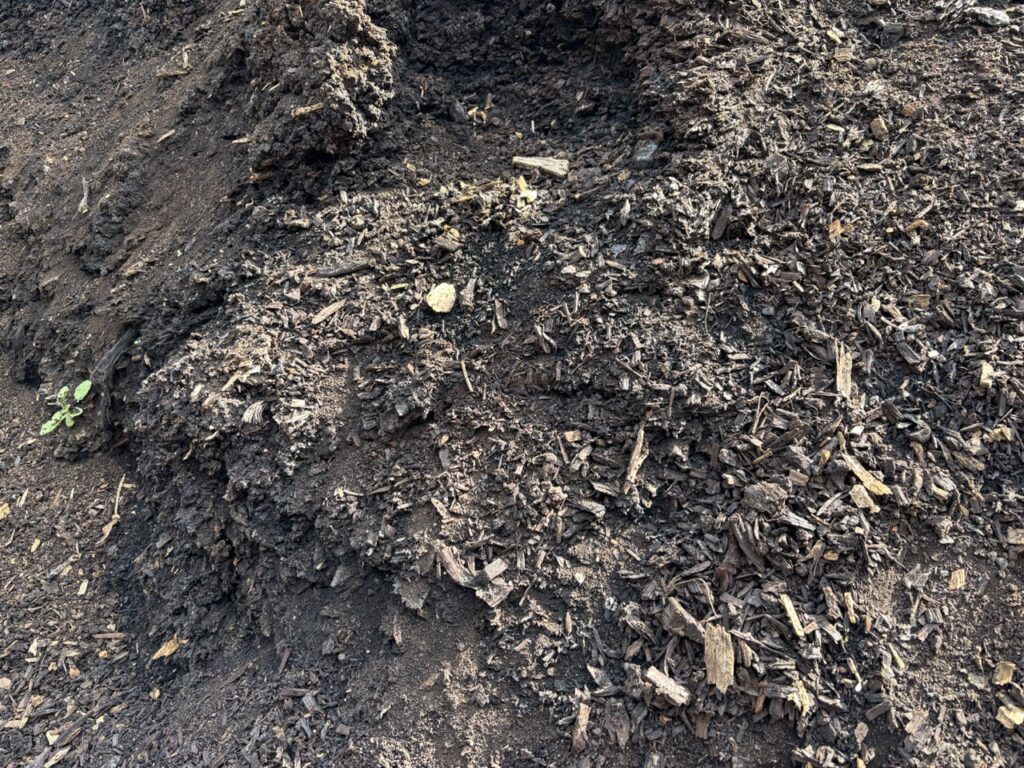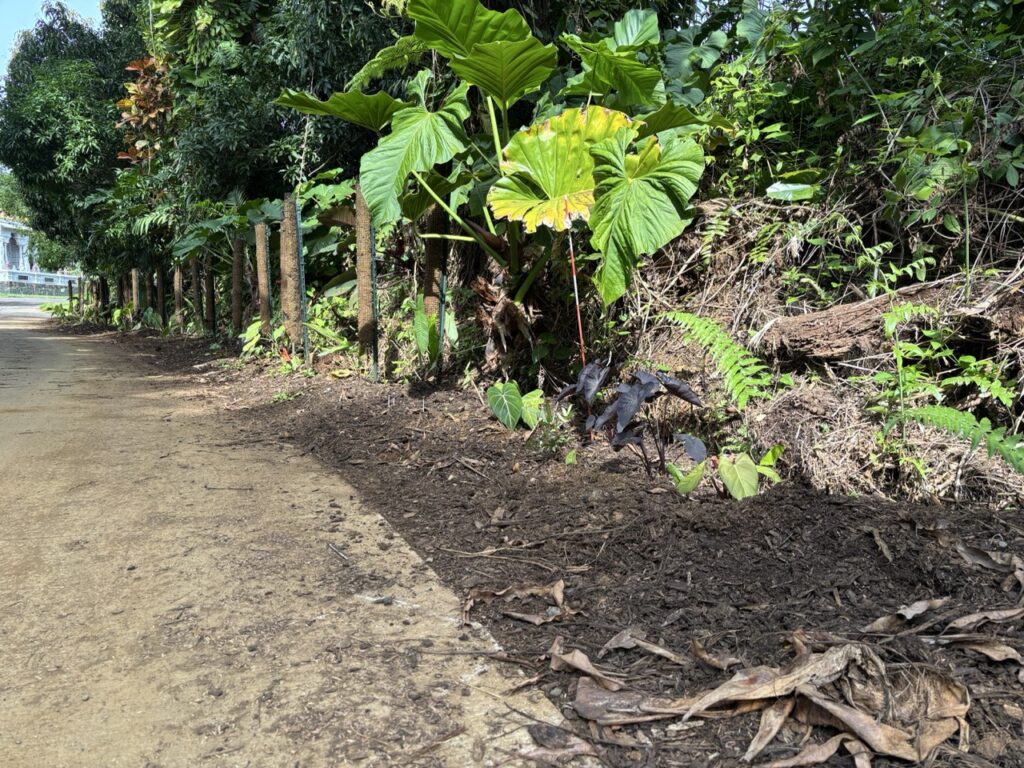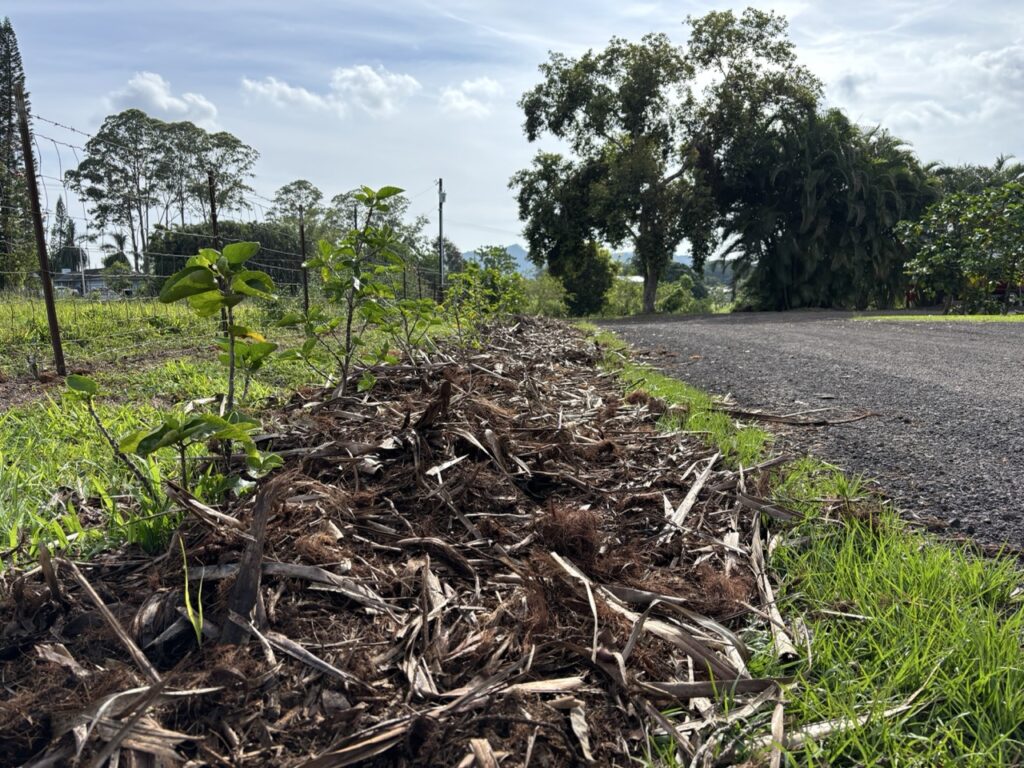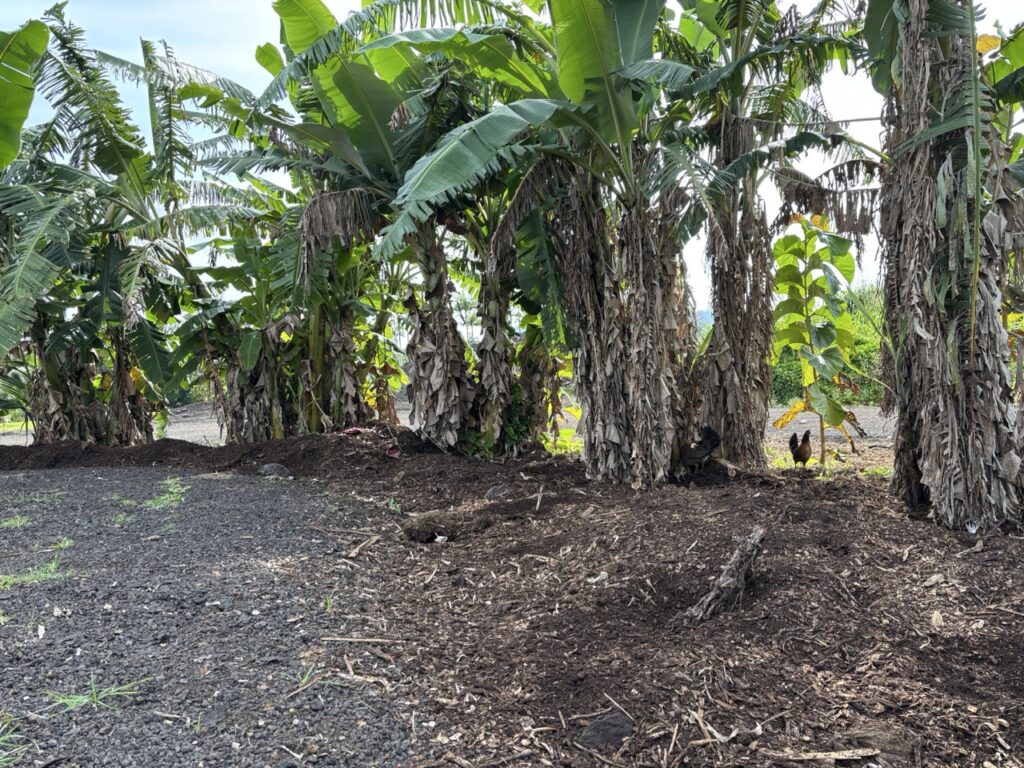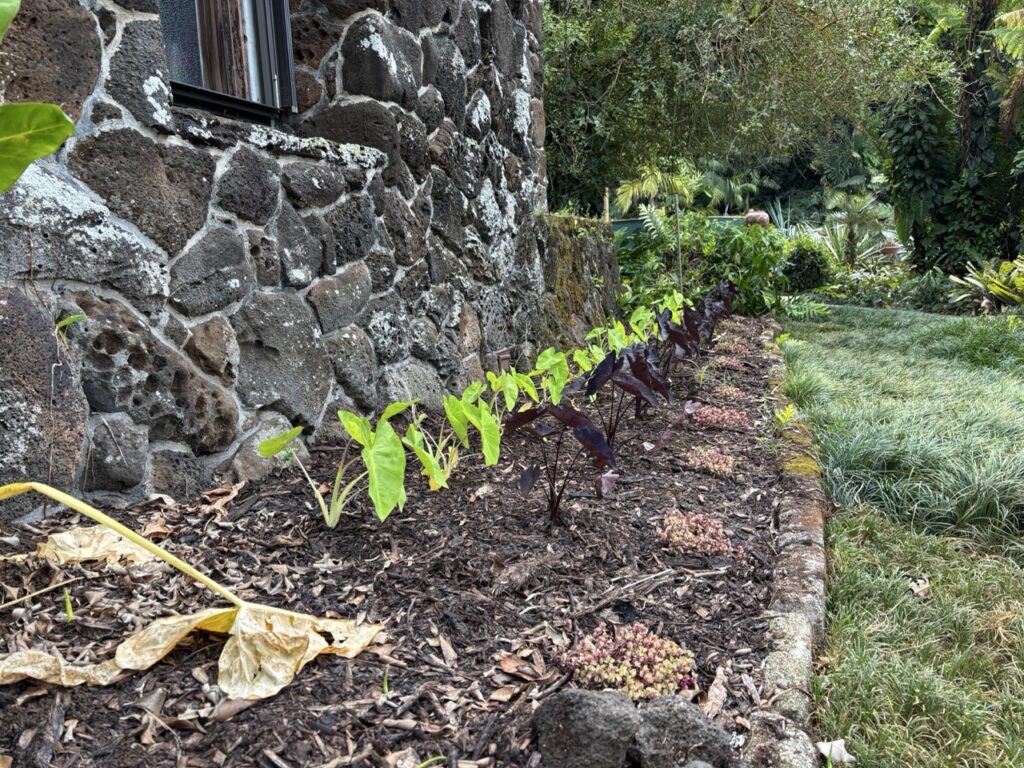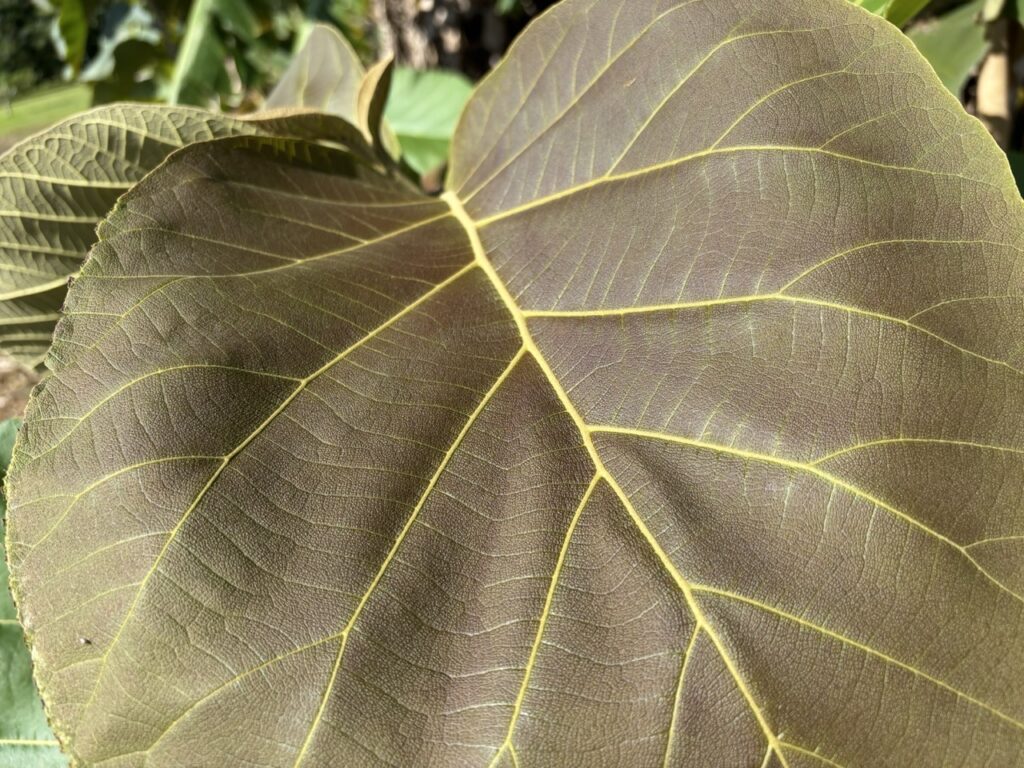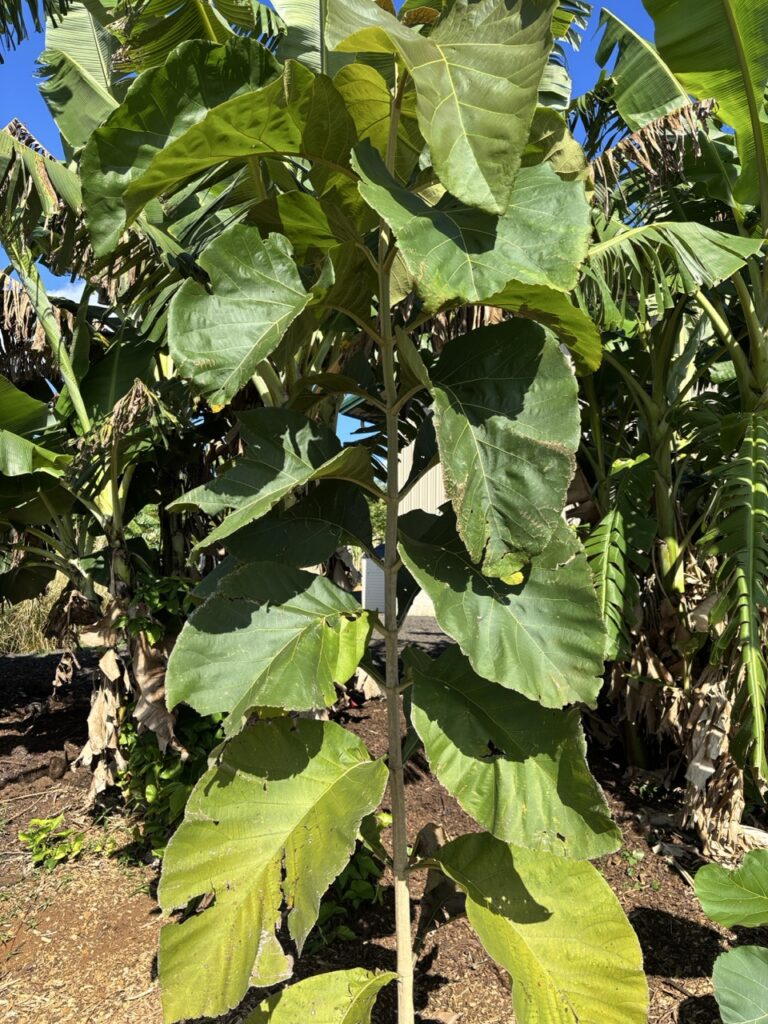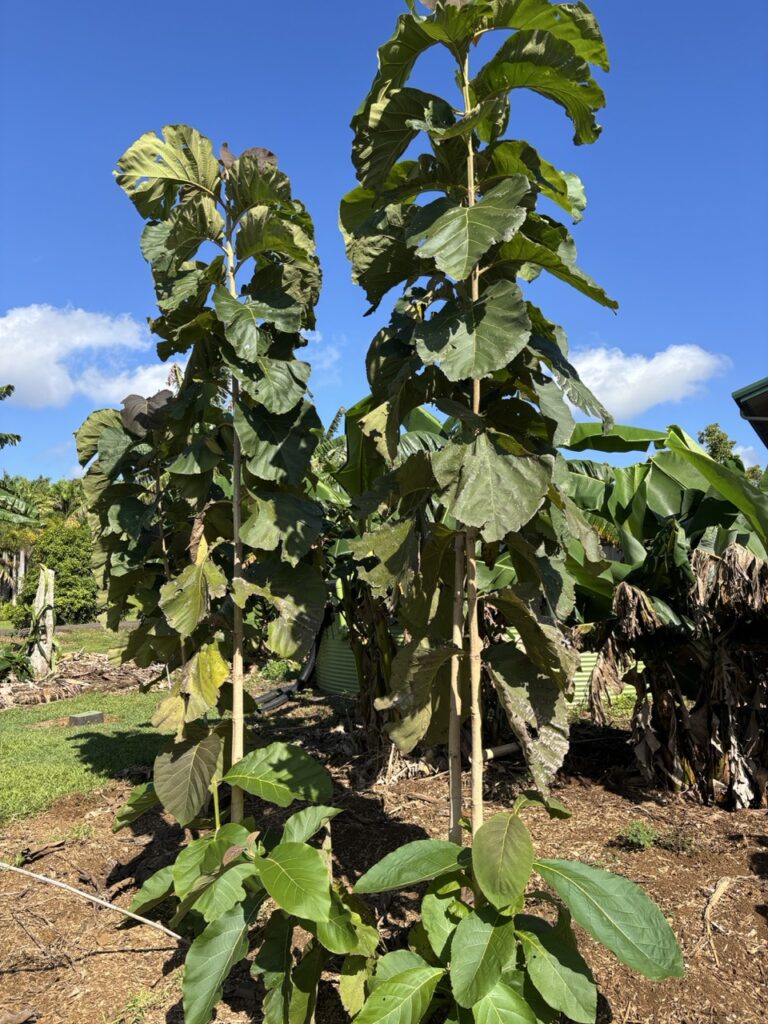Season Change and New Upadesha
Happy New Year. This morning we had a Siva homa and hoisted a new flag to mark the change of seasons into the Nartana Ritau.
Here follows the passage from Saiva Dharma Shatras about how we should approach this new season:
Nartana Ritau, the season of Dancing with Siva, begins on Hindu New Year. This is the period of creation, the warm season, from mid-April through mid-August. The key word of this season is planning. The colors are orange, yellow-gold and all shades of green–orange for renunciation, yellow-gold for action, and green for regeneration. High above, the main Hindu flag flies the color orange, heralding the Nartana Ritau throughout this season, symbolizing sadhana and self-control. The other colors adorn smaller flags. This is the season of giving special attention to those in the grihastha ashrama. It is a time of awakening, renewal, review. The emphasis is on seeing ahead, planning for future years. It is a time of planning retreats and other activities for youths and adults for the entire year. During this time of looking forward, the Church’s six-year plan is updated by the Guru Mahasannidhanam and stewards and another year added. The Saiva Dharma Shastras are studied; and any needed additions in supplementary manuals, representing new growth, are made.
The practical focus is completion of unfinished projects. Secular holidays to observe among the families include Mothers Day in May, Fathers Day in June and Grandparents Day in August. In the monastery intensive cleaning of buildings and grounds takes place. New clothing is issued and old garments mended.
This season of harvest and new growth is also the time to review and reestablish picking and planting routines for the gardens. It is a time for ordering seeds and plants for the year, of planting trees, fragrant vines and the annual crop. Review is made for scheduling the care of all realms of the Aadheenam. Kadavul temple and the Guru Temple are cleaned and renewed during this season, and the adjacent grounds receive special, abundant attention.
The daily sadhana is the Sivachaitanya Panchatantra: experiencing nada, jyoti, prana, shakti and darshana. In Sanskrit, it is a time of learning new shlokas and mantras. Shrine rooms are renewed and redecorated for the year, and the clothing of all is renewed in the Hindu style of the current fashion. It is a time of doing things for others, religious outreach. In the missions, Nartana Ritau is the time of bringing in new students and Church members. It is a time of hatha yoga and philosophical teaching.
The main festival of Nartana Ritau is Guru Purnima. The mathavasis hold special conclave on Vaikasi Vishakham, the full moon day of May.
Satguru Bodhinatha Veylanswami gives his weekly upadesha in Kadavul Temple at Kauai’s Hindu Monastery in Hawaii. It is part of a series of talks elaborating on the inspired teachings of Satguru Śivaya Subramuniyaswami as found in his book Merging With Śiva.
“There are many things in life which endeavor to keep us away from our true being. These are the cycles of life. We must watch and be careful of these recurring cycles in our life. These joyous and sorrowful occurrences that awareness experiences, sometimes each day, sometimes each week, sometimes each month, are totally dependent upon the positive control that we have of awareness. But then there are greater experiences that have even longer cycles—perhaps a three-year cycle, a five-year cycle, a ten-year cycle or a fifteen-year cycle.“
Season Change and New Upadesha Read More »

